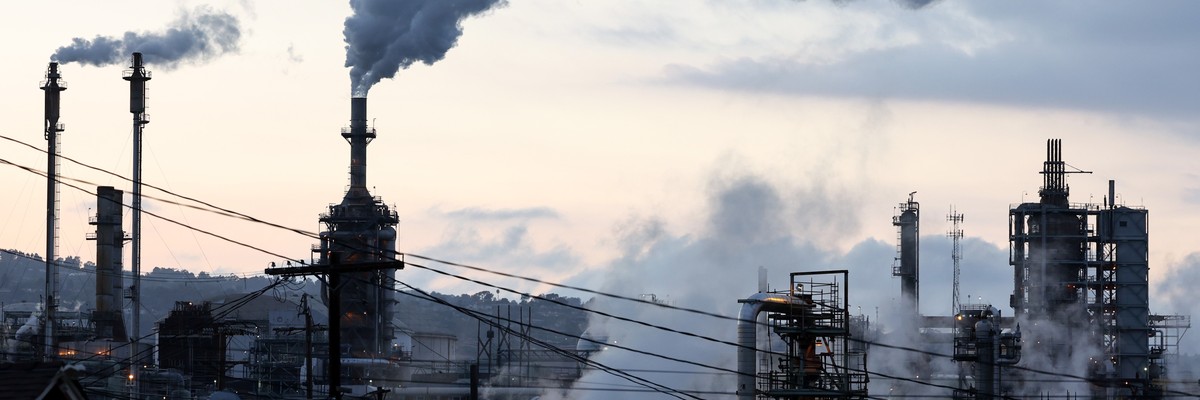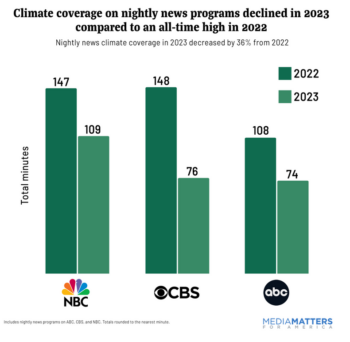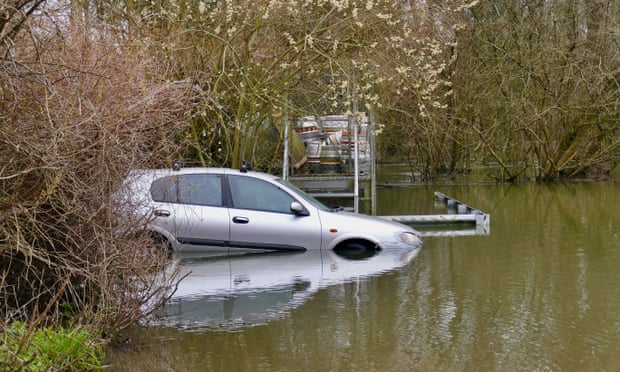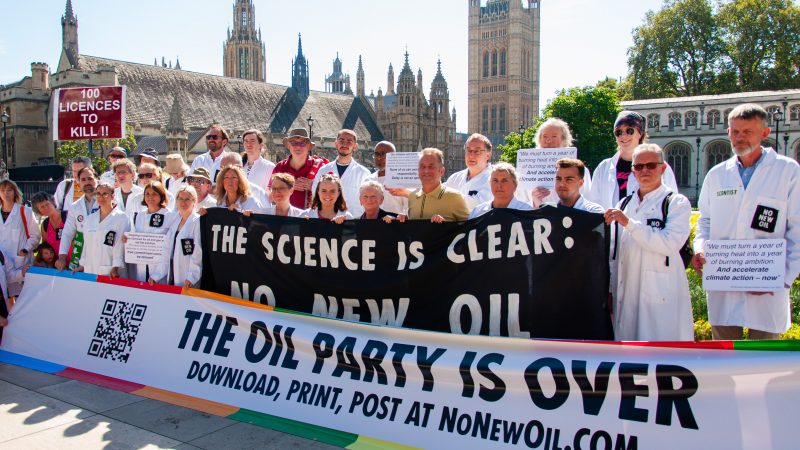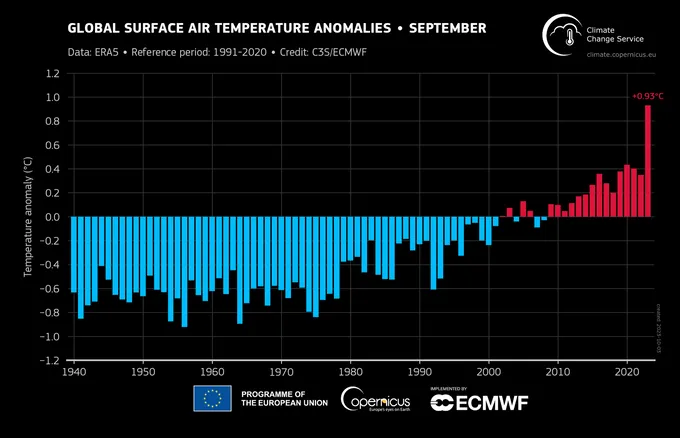‘An Affront to the World’: Shell Posts Billions in Profits as Planet Burns
Original article by OLIVIA ROSANE republished from Common Dreams under Creative Commons (CC BY-NC-ND 3.0).
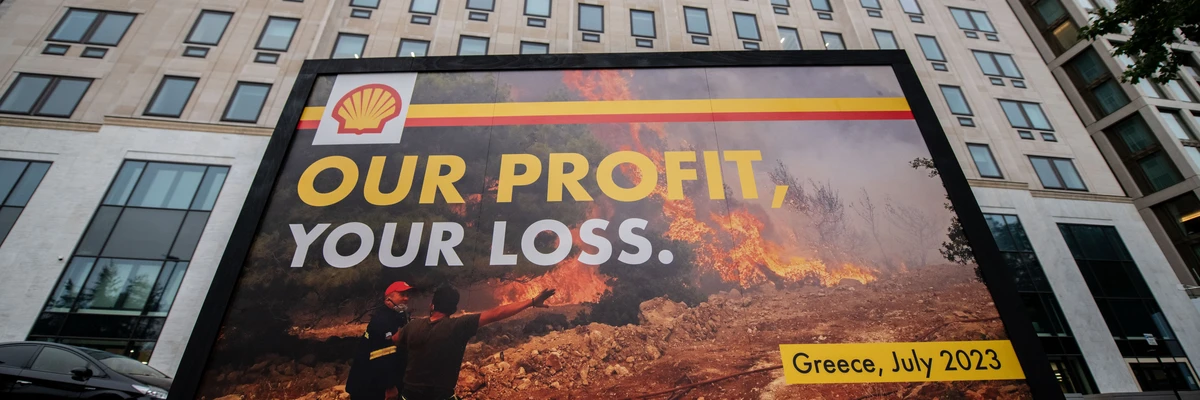
“The grotesque wealth that this Earth-wrecking company continues to accumulate is something we cannot allow ourselves to accept as normal,” one campaigner said.
Oil major Shell announced $7.7 billion in profits during the first quarter of 2024 on Thursday, as well as a $3.5 billion share buyback program.
The news comes as every month covered by the period was the hottest of its kind on record. The three-month period also saw the second-largest wildfire in Texas history, extreme heat in West Africa and the Sahel, and the beginning of the Great Barrier Reef’s fifth mass bleaching event in eight years. Scientists have clearly linked global heating, and the weather disasters it exacerbates, to the climate crisis driven primarily by the burning of fossil fuels.
“As extreme weather accelerates and the cost-of-living crisis rumbles on, Shell’s latest billion-pound profits are an affront to the world,” Izzie McIntosh, climate campaign manager at Global Justice Now, said in a statement. “The grotesque wealth that this Earth-wrecking company continues to accumulate is something we cannot allow ourselves to accept as normal.”
“This is the sad irony of the global energy system in which those causing chaos are the ones getting rich.”
Shell’s profits for the first three months of 2024 were around 20% lower than for the same time in 2023, CNBC reported. However, the company brought in $1.2 billion more than analysts had predicted. The world’s largest oil firms, including Shell, saw record profits in 2022 following Russia’s invasion of Ukraine and the energy crisis that followed.
“Shell has beaten expectations by a reasonable margin, despite the impact of lower gas prices during the first quarter,” Stuart Lamont, an investment manager at RBC Brewin Dolphin, said in a statement shared by CNBC.
Global Witness pointed out that Shell’s earnings to date amounted to over $58,000 a minute, more than the average U.K. nurse makes in a year.
“Shell continuing to rake in huge sums of money shows us that huge polluter profits were not a one-off but are the twisted reality of an energy system that benefits climate-wrecking companies to the cost of everyone else,” Global Witness fossil fuel campaigner Alexander Kirk said in a statement.
Shell announced its profits one day after the U.S. Senate held a hearing on how large oil and gas companies, including Shell, have continued to deceive the public about the dangers of their products, moving from outright climate denial into making commitments they don’t intend to keep or touting false solutions like carbon capture and storage that they then fail to develop. Shell, according to the testimony of Rep. Jamie Raskin (D-Md.), spent only 11% of its capital on low-carbon technologies between 2009 and 2023.
The hearing sparked calls for accountability from the fossil fuel industry—such as mechanisms to make climate polluters pay for the transition to renewable energy—and the news of Shell’s profits generated more.
In the U.K., Labor Shadow Energy and Climate Minister Ed Miliband proposed increasing the tax on energy company profits. Shell paid the U.K. government around $1.4 billion in taxes in 2023, of which around $300 million went to the Energy Profits Levy, according toThe Guardian. Also last year, it paid its shareholders $23 billion, nine times more than it invested in its “Renewables and Energy Solutions” program.
“These results show yet again why it is so damning [that Prime Minister] Rishi Sunak refuses to bring in a proper windfall tax on the oil and gas giants,” Miliband said. “These are companies that have made record profits at the expense of working people. Labor says tax these companies fairly so we can invest in clean homegrown energy that will end the cost of living crisis and make Britain energy independent.”
Greenpeace U.K. called Shell’s latest profits “shameless.”
“Their reckless hunt for profits needs to end,” the environmental advocacy group wrote on social media. “When will world leaders find their backbone and make polluters pay?”
When one commenter suggested governments held back out of desire to keep collecting Big Oil’s taxes, Greenpeace fired back, “What taxes?” and noted that Shell avoided paying U.K. taxes for years.
“At the end of the day we want clean, cheap renewable energy not to face the worst impacts of climate change,” Greenpeace continued. “Solutions exist, we just need the political and industrial will to get them in place.”
Global Witness and Global Justice Now also took the opportunity to call for an energy transition.
“This is the sad irony of the global energy system in which those causing chaos are the ones getting rich,” Kirk said. “This spiral won’t stop until we make the urgent switch to a fairer renewable energy system that puts both people and planet first.”
McIntosh concluded: “We urgently need to bring a fair and organised end to the fossil fuel era, and that means companies like Shell must stop trying to extract new oil and gas, and start paying what they owe for the loss and damage they’ve caused. Profit announcements like this for a corporate dinosaur like Shell need to become a thing of the past.”
Original article by OLIVIA ROSANE republished from Common Dreams under Creative Commons (CC BY-NC-ND 3.0).
- Fossil Fuel Giants To Lavish Shareholders With Record Paydays As Climate Crisis Deepens ›
- In ‘Climate-Wrecking’ Reversal, Shell Ditches Plans For Oil Production Cut And Hikes Dividend ›
- Big Oil’s Record Profits And Buyback Splurge Spotlight ‘Broken Energy System,’ Critics Say ›
- Campaigners Rip Shell CEO’s ‘Cynical Case’ Against Ditching Fossil Fuels ›
- Shell ‘Doubled Down On Oil’ In 2023 As Planet Burned: Analysis ›
- As Planet Burns, Shell Reports $5 Billion In Profits And Plans To Ramp Up Fossil Fuels ›
